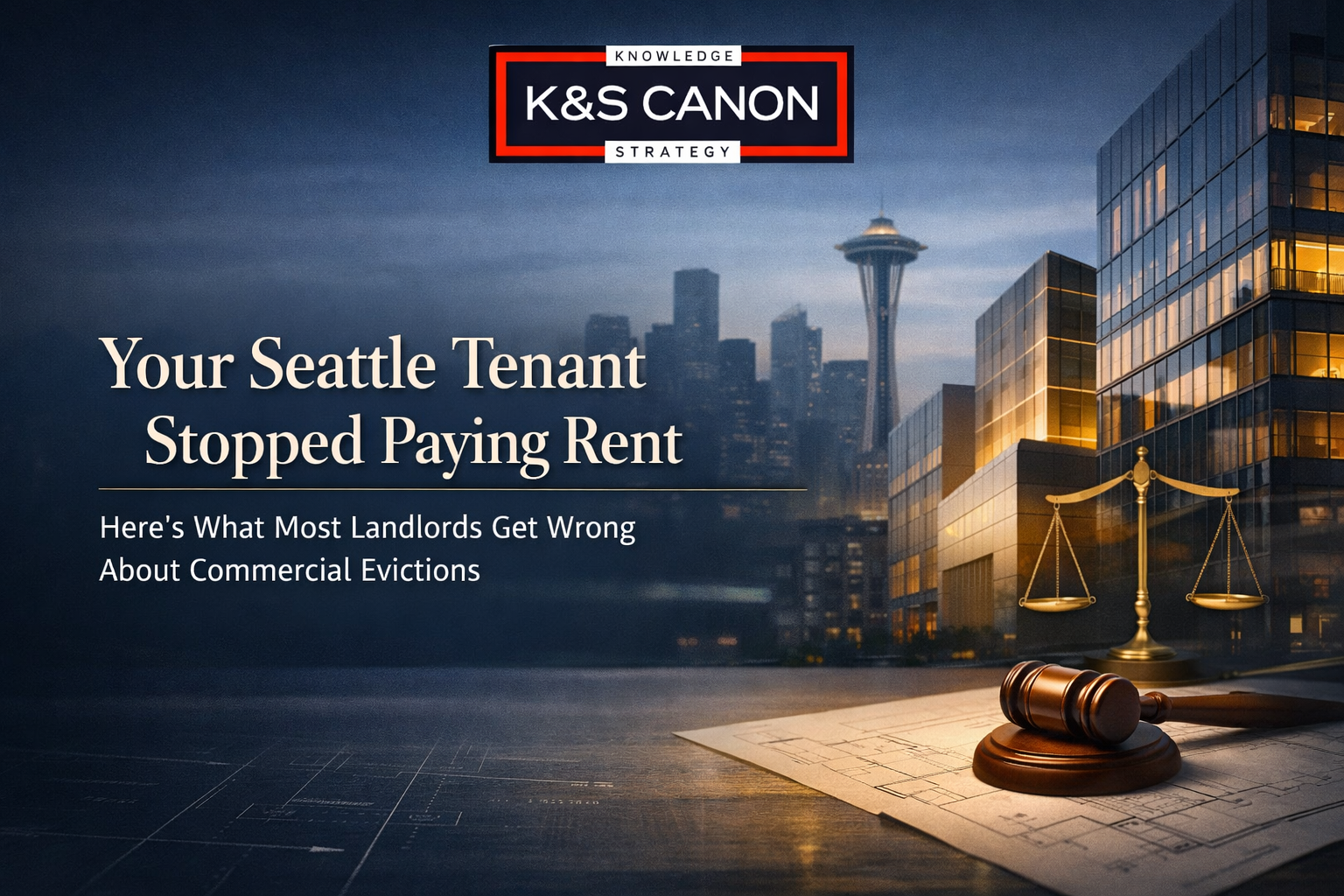ADA Compliance in Washington Commercial Real Estate: What Property Owners Must Know

When you own or lease commercial property in Washington State, ADA compliance isn't optional; it's a legal requirement that can substantially impact your business operations and financial liability. Many property owners assume their buildings are compliant, but recent changes and enforcement patterns show that assumption can be costly.
The Americans with Disabilities Act affects virtually every commercial property open to the public, from office buildings and retail spaces to restaurants and medical facilities. In Washington, both federal ADA requirements and state accessibility standards apply, creating a framework that property owners must address carefully. For more information about all compliance requirements affecting commercial real estate, see our compliance and regulation in commercial real estate page.
Who Is Responsible for ADA Compliance?
Both landlords and tenants can be held responsible for ADA violations, but the specific obligations depend on your lease agreement and the type of modification needed. When, hypothetically, a commercial landlord leases space to a tenant, but the space lacks proper accessible features like appropriate service counter heights or adequate accessible fitting rooms, both parties may face liability under Title III of the ADA.
Property owners could benefit from addressing this responsibility upfront during initial lease negotiations. A property owner may require tenants to handle certain compliance modifications, or may choose to confirm that the space meets ADA standards even before leasing. The key is having clear contractual language that defines who handles what compliance obligations.
Washington-Specific Considerations
Washington State has its own accessibility standards that work alongside federal ADA requirements. The Washington State Building Code includes accessibility provisions that sometimes exceed even federal minimums. For commercial properties, this means a property owner would need to comply with whichever standard is more stringent.
Recent enforcement in Washington has focused heavily on website accessibility for businesses, but physical property compliance remains a priority. The state's emphasis on inclusivity means ADA compliance issues receive attention from both regulators and advocacy groups.
Common Compliance Areas
Parking and Access Routes: Your property must provide accessible parking spaces with proper signage and slopes. The number of required accessible spaces depends on your total parking count, and these spaces must connect to accessible routes leading to building entrances.
Building Entrances: At least one primary entrance must be accessible, with proper door width, threshold height, and operating hardware. Automatic door openers aren't always required, but they substantially improve accessibility. The U.S. Access Board provides detailed ADA Standards that specify exact requirements for entrances and other building elements.
Interior Accessibility: Accessible routes must connect key areas like seating, service counters, and restrooms. Elevators are required in multi-story buildings, with limited exceptions for smaller structures.
Restroom Facilities: When restrooms are provided, accessible facilities must be available. This includes proper stall dimensions, grab bar placement, and sink accessibility.
Financial Implications
The Department of Justice can impose fines up to $75,000 for first violations and $150,000 for subsequent violations. Private lawsuits are also common, and these can result in substantial legal fees and settlement costs even when you ultimately prevail. The Department of Justice Civil Rights Division provides resources for property owners working to achieve compliance.
Yet compliance also brings business benefits. Accessible properties attract a broader customer base and demonstrate your commitment to serving all community members. Many companies specifically seek accessible office space as part of their corporate responsibility initiatives.
Next Steps for Property Owners
If you haven't conducted an ADA compliance assessment recently, consider scheduling one with a qualified consultant. Washington's commercial real estate market is competitive, and compliance issues can create unexpected obstacles when selling or leasing your property.
Remember that ADA compliance is an ongoing obligation, not a one-time checklist. As you modify or renovate your property, new compliance requirements may apply. Staying ahead of these obligations protects both your investment and your tenants' businesses.
This information is provided for educational purposes only and does not constitute as legal advice. ADA requirements can be property-specific. Please consult with an attorney experienced in disability access law for guidance on your specific situation.
Need help with ADA compliance for your commercial property? Contact K&S Canon to discuss your specific situation.




